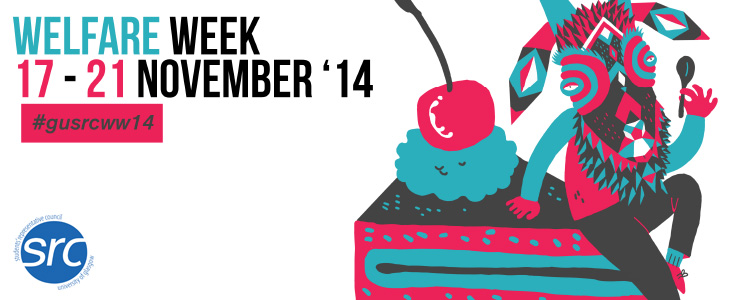Warm, Healthy and Affordable
Winter can be an expensive time, particularly if you are living in rented accommodation which may be draughty and hard to heat. But keeping warm can help to keep you physically healthy, particularly important when you have exams to study for.

As part of Welfare Week here are some tips on keeping warm without running up huge heating bills:
- Make sure your heating is working as it should. Ask the landlord or agent when it was last serviced, and make sure your report the need for any repairs as soon as possible (preferably in writing/by email). Your landlord is responsible for keeping your accommodation up to the ‘repairing standard’, which means that any heating system must be ‘in a reasonable state of repair and proper working order’. If you have problems getting repairs done, come and speak to the SRC Advice Centre (we’ll have the heating on!)
- Use your heating efficiently. Make sure you know how your heating system works – if you have a boiler and radiators, can you control each radiator individually? What temperature is the thermostat set at? Most people find between 16 and 18oC to be the comfortable zone. If you have electric storage heaters, do you know how to get the most out of these? If you’re not sure, the Energy Saving Trust has some useful guidance, or you can ask your landlord or letting agent to show you.
- Make sure you are paying the right amount for your gas and electricity. Whenever you get a bill or statement, check the readings on your meters – don’t just assume that an estimated bill will be correct. If the estimate isn’t close to your actual meter reading, phone or go online and provide the reading. This helps you keep track of your usage, can save you under- or over-paying and avoid any financial shocks later down the line.
- Wrap up warm. Sounds obvious, but worth reminding you – that extra jumper, thick socks and/or a hat when you are sitting studying or watching TV could make all the difference. Layer up your clothes as lots of thinner layers will insulate you better than one or two thick layers.
- An extra blanket, a thicker duvet on your bed – or even a hot water bottle – means you don’t need to heat up your bedroom quite so much at night.
- Close curtains in the evening to help stop heat escaping out of the windows.
- Use draught excluders at the bottoms of your doors to stop heat escaping. If you don’t have an actual draught excluder try using a rolled up towel.
- Eat well for the cold weather – nice hot soup, a curry, a comforting stew – and warm yourself from the inside out. If you’ve used the oven, open the door after you’ve switched it off and let the heat into the room.
- Save energy and money by switching off unnecessary lights, and unplugging electrical equipment at the mains when not using.
- Consider using an electric blanket or hot water bottle (not both at once), instead of turning on the radiator. But only if you are sure these are in good nick, and meet modern safety standards.
Some other websites with winter warmer tips:
http://agirlcalledjack.com/2013/11/14/my-tips-for-keeping-warm-in-winter-from-a-veteran-of-freezing-houses-wooden-floors-and-big-windows/
http://www.youngscot.org/info/2707-help-your-family-keep-cosy-this-winter
http://www.netmums.com/lifestyle/money-and-debt/keep-warm-this-winter
http://www.studentbeans.com/mag/en/money/cut-energy-bills-with-our-13-tips-for-keeping-warm
http://www.fireservice.co.uk/safety/electric-blankets
http://www.fireservice.co.uk/safety/candles